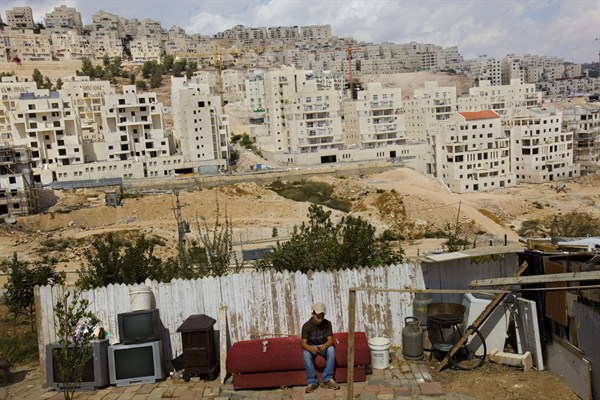Last week, the Israeli national security agency Shin Bet announced a series of arrests of extremist Israeli settlers suspected in the July arson attack that killed a Palestinian family of three in the West Bank village of Duma. The grisly incident, in which radicals from illegal Israeli settlements set a home on fire, leaving an 18-month-old boy to burn to death, brought settler violence to the fore.
Although the Duma attack renewed concerns over settlement expansion and the violence it brings, such episodes are not new. As far back as 2008, settlers coined the term “price tag” to describe acts of vandalism and violence targeting Palestinians and Israeli security forces that get in their way. This summer, Shin Bet drew attention to an opaque network of extremists called the Revolt. The group’s radical and religious views differ from even the most hard-line Israelis: Its members call for replacing the modern state of Israel with a Jewish kingdom that would expel non-Jews and enforce religious observance in public spaces. In August, authorities placed two radicals suspected of belonging to the group under six-month administrative detention, in which suspects are held without charge or trial—a tactic commonly used against Palestinians but seldom against Israelis.
Although the spate of recent arrests may seems like a more aggressive crackdown on Israeli settlers, it falls short of what is necessary to quell extremist violence. “This is in no way a shift,” says Lisa Goldman—a contributing editor to +972mag, an online magazine that focuses on the Israeli-Palestinian conflict—in an email interview. “It took Shin Bet over four months to find and arrest the suspects, even though the pool of possible perpetrators is small and well-known to police and Shin Bet,” she adds.

